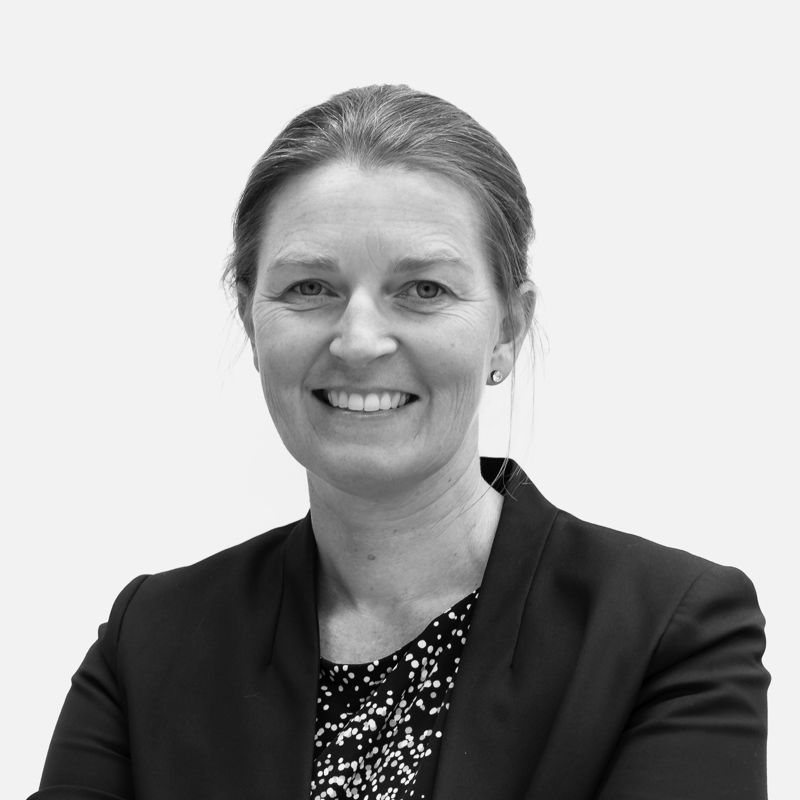Women In Nutraceuticals (WIN) is a not-for-profit group created in 2022 to build support for women in the nutraceuticals industry. The group is campaigning for an increase in women holding leadership roles throughout the dietary supplement industry, an enhancement of funding opportunities for female-led businesses and the enhancement of female participation in nutraceutical research.
A member of this organisation is Amanda Mackinnon, an integral part of the leading team at Marinova.
Marinova Pty Ltd (Marinova), an Australian ingredient supplier, has emerged as a company intent on providing opportunities to close the gender gap, implementing this via pathways and opportunities for women within their business. Women represent 50% of their workforce and 50% of the company’s leadership team. One of the key members bringing the ethos of WIN to the forefront of recruitment and training is Amanda Mackinnon, Marinova’s Marketing & Communications Manager, who Annabel Kartal-Allen reached out to for comment:
“Interestingly, this is something that has not been achieved by implementing specific gender equity polices, but by remaining focused on the continual development of our skills matrix,” says Mackinnon. “The recruitment and promotion process at Marinova has always been based on a candidate’s skills. It boils down to who is the best person for the job, regardless of factors such as gender, age, ethnicity or sexuality.”
we not only recruit new team members to enrich our skills matrix but also... to contribute to our company culture
In addition to recruitment, a skills matrix can be a valuable tool for performance improvement, career development and succession planning.
“It’s a mindset that helps us support the professional development of our staff as we can quickly identify and analyse gaps. We can also identify employees who have abilities to progress to more senior positions.”
It’s an approach that sees Marinova’s scientific, quality, logistics, marketing and finance departments all currently headed by women.
“These industry leaders are highly skilled, well qualified and adaptable professionals. In addition to their own impressive skill sets, each one is genuinely focused on teamwork and is generous in sharing their knowledge with others – something we see as a vital step in succession planning and future proofing.”

Amanda Mackinnon, Marketing & Communications Manager for Marinova Pty Ltd
Marinova cites a focus on cultural fit as an additional factor supporting the company’s highly engaged workforce.
“At Marinova we not only recruit new team members to enrich our skills matrix but also on their propensity to contribute to our company culture. We are very focused on collaboration and it’s important to the company that new team members genuinely feel the same way. We see collaboration as a real strength and one that continues to provide us with agility in the marketplace. We have a team that works very well together and as a result we can react quickly – to harness opportunities or mitigate any pending challenges.”
Building ‘in-house’ experience has also been important to Marinova’s success.
“We operate in quite a niche,” explains Mackinnon. “It is hard to recruit an expert in the marine ingredient fucoidan; so, essentially, we must train them ourselves. Marinova’s graduate programme represents an important step in this process. We designed this professional one year program to support talented graduates to become the next generation of fucoidan experts. Investing in in-house training and mentoring works very well for us.”
mentors have empowered and encouraged me to develop new skills during the past year
After completing her PhD in seaweed biochemistry, Dr Ellie Paine has recently completed a 12-month graduate programme with Marinova. “Two things really stood out to me throughout his program, says Dr Paine. “The mentorship I have received from everyone at Marinova and the opportunity to learn across all facets of the business. The readiness of my mentors to involve me in daily operations has provided me with a first-class experience.”
Dr Paine has now joined Marinova’s permanent staff in the position of Business Development & Scientific Officer, a role that spans both commercial and scientific functions.
“I have definitely appreciated the fact that my mentors have empowered and encouraged me to develop new skills during the past year. They have helped me to identify potential career paths, challenged my thinking, and constantly allowed me to try new tasks. They have also listened to my goals and worked collaboratively with me to design my path forward. I think that approach is quite unique and it’s certainly one I value.”
An added benefit to Marinova’s skills matrix focus has been growing cultural diversity.
“Whilst Marinova does not have a large team, we now have more than 10 nationalities represented,” states Mackinnon. “This brings a rich diversity in thought, perspectives and values, as well as a vast ranges of experiences from which we can draw from.”
“Research indicates that age diversity in the workforce tends to reduce workforce turnover” continues Mackinnon. “That is something we see here at Marinova too. We have extremely low staff turnover, and our team includes members of Gen-Z all the way through to baby-boomers. Diversity in all its forms is a powerful enabler of productivity – it allows us to harness complementary abilities, skills, information, and experience.”
In Australia, only one in four organisations have a gender-balanced leadership team. “Australia, like many other countries, still has a long way to go to achieve gender parity,” says Mackinnon. “ Although for Marinova, this occurred through a strategic focus on skills and the evolution of a collaborative company culture, we do understand that, for some companies, progress might necessitate the introduction of formal strategies and policies.”
